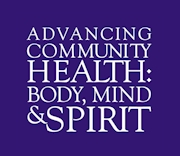News Release
FOR IMMEDIATE RELEASE
April 9, 2003
Child Obesity Reaches Epidemic Proportions in Houston
St. Luke’s Episcopal Health Charities launches Strategic Plan for the Prevention and Treatment of Overweight Children in Houston–Harris County
(HOUSTON) – St. Luke’s Episcopal Health Charities, working with 31 community and academic partners, today unveiled the Houston–Harris County Youth Nutrition and Fitness Initiative, a strategic, comprehensive, community-based program for the treatment and prevention of overweight children and adolescents.
Five researchers who worked on the report – Patricia Gail Bray, Ph.D.; Deanna Hoelscher, Ph.D., R.D.; Christine McCullum, Ph.D., R.D.; Elena Vergara, M.A.; and Mona Eissa, M.D., Ph.D. (pediatrician) – discussed it during a press conference at the Texas Heart Institute at St. Luke’s Episcopal Hospital–The Denton A. Cooley Building.
Seven recommendations for community-based interventions to treat and prevent obesity in children and adolescents were developed – researchers found that almost 50 percent of Houston area 4th graders were at risk or overweight, the highest in the state. The Initiative, which draws on previous work done by the CDC and the Strategic Plan for the Prevention of Obesity in Texas, will be piloted in Houston’s East End, a medically underserved, low-income, predominantly Hispanic community.
Recommendation 1
Leadership, planning and management: Provide a culture that supports fitness and nutrition initiatives, including dedicated human resources, technical expertise and financial support. Create 1) a Youth Nutrition and Fitness action committee that will organize and prioritize interventions and funding options for initiatives in Houston’s East End and 2) a community advisory group to monitor progress on new initiatives.
Recommendation 2
Environmental systems and policy change: Mobilize multiple stakeholders in Houston's East End community, creating partnerships and coalitions, and focusing local, state and national governmental entities in order to create social/physical environments and policies that support physical fitness and healthy nutrition for children and youth. Mobilize Houston’s East End families, schools and the community to create opportunities to choose lifestyles promoting healthy weight in children. Promote policies and environmental changes that support healthful eating habits and physical activity.
Recommendation 3
Mass communication: Enlist the media to increase awareness of obesity as a public health issue that impacts the quality of life of children in Houston’s East End community. Hold a community forum and information gallery in Houston’s East End regarding youth nutrition and fitness and implement a local version of the CDC Verb program.
Recommendation 4
Programs for community and community development: Empower community members and community agencies to work together to develop community-level, culturally appropriate interventions for the prevention and treatment of childhood overweight. Engage the community advisory committee to guide this work.
Recommendation 5
Programs for children and youth: Engage community organizations, schools, teachers, parents and youth to develop interventions that seek to improve physical activity levels and nutrition for children and youth through interventions outlined in this plan. They should be behaviorally based and focus on pre-Kindergarten and elementary school populations. Engage the community advisory committee to guide this work.
Recommendation 6
Healthcare delivery: Create effective health systems for the prevention and treatment of youth overweight, including providing appropriate referrals for treatment and education. Increase overweight prevention literacy in area health providers and create a multi-disciplinary clinical team to monitor and treat overweight children.
Recommendation 7
Surveillance and epidemiology research: Implement surveillance of childhood overweight in the Houston area. Currently it is difficult to obtain Houston-area data that shows the extent of the public health problem. Data should include height and weight data that is representative of the Houston school-age population and is taken at specific developmental levels. Assessment of eating behaviors and physical fitness measures should also be included.
Obesity in children contributes to life-long problems, including cardiovascular disease, type 2 diabetes, hypertension, liver dysfunction, eating disorders, depression and low self-esteem. The outcomes are poor for an overweight child who becomes an obese adult; few obese adults are able to achieve and maintain a healthy weight
In the last two decades, the number of overweight American children has doubled and the number of overweight adolescents has almost tripled. Currently, approximately 35 percent of Texas children (about two million) are overweight, especially African American females and Mexican American males. In a recent survey of the Texas Department of Public Health Region 6 (which includes the Houston area), researchers found that almost 50 percent of 4th graders were at-risk or overweight, the highest rate of all the Public Health Regions in the state. The prevalence of obesity in Houston exceeds the state estimate of 35 percent, according to the Strategic Plan for the Prevention of Obesity in Texas (2003).
The Houston–Harris County Youth Nutrition and Fitness Initiative includes data on the prevalence of child obesity, risk factors, current programs and policies, funding streams, and an intervention plan. It is intended as a call to action for individuals, communities, organizations and policy makers to implement strategies to achieve the vision of all Texans having a healthy weight.
###
St. Luke’s Episcopal Health System is a comprehensive health system that meets the primary and tertiary healthcare needs of the community. Established by the Episcopal Diocese of Texas, the System includes the flagship St. Luke’s Episcopal Hospital in the Texas Medical Center, St. Luke’s Episcopal Health Charities, St. Luke’s Community Health Services, KS Management Services, LLP, and St. Luke’s Community Medical Center (CMC)-The Woodlands.


